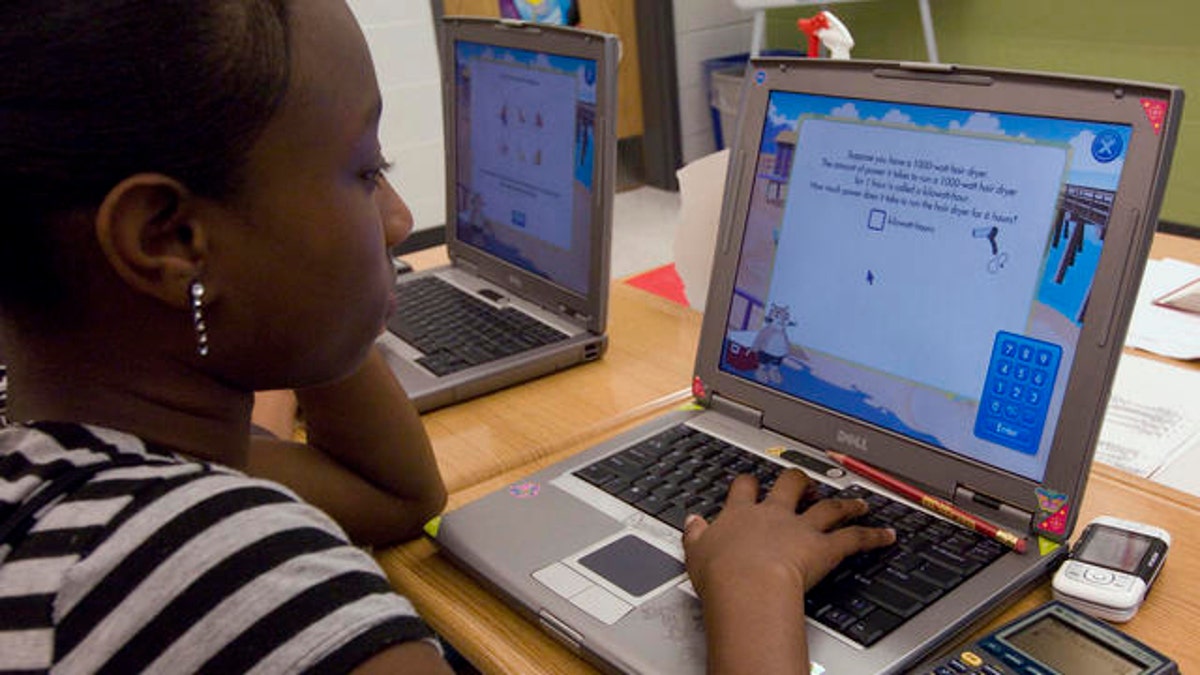
Destinee Brown, 14, and eighth grade student, works on her computer during math class at the Long Branch Middle School, a school in restructuring in the working-class New Jersey shore town of Long Branch, N.J., Friday, June 1, 2007. (Colin Archer/AP Photo) (Colin Archer/AP Photo)
Schools receiving subsidies for Internet service will have to teach students about the perils of cyberbullying and the responsible use of social networking sites, the U.S. telecommunications regulator said on Friday.
Cyberbullying "happens when teens use the Internet, cell phones, or other devices to send or post text or images intended to hurt or embarrass another person," and it's a problem for nearly half of all U.S. teens, according to the National Crime Prevention Council.
It's increasingly being cited as a predecessor to suicide attempts, the third leading cause of death among 10 to 24-year-olds in the United States.
Last month, 18-year-old Rutgers University student Tyler Clementi took his life after fellow students posted video of him engaged in sexual activity online. In 2006, 13-year-old Megan Meier committed suicide after a classmate and friend's mother bullied her through a fake MySpace account.
The Federal Communications Commission said it will soon issue an order to schools receiving funds from the E-rate program, which subsidizes school Internet access, to address cyberbullying and improper use of sites like Facebook and MySpace.
The FCC said the order would put its regulations in line with the Protecting Children in the 21st Century Act.
The agency voted in September to ease rules mandating how schools and libraries can use $2.25 billion in federal subsidies to get Internet access, allowing them to take advantage of unused fiber optic cables in localities and high-speed access from state and local networks.
E-rate funded schools, which the FCC said represents the "vast majority of schools," must already have Internet safety policies and filters to prevent access to inappropriate content. The new order will ensure that these policies also include online safety education, FCC said.
The FCC also announced plans to open the application process for a pilot program that would fund wireless Internet access and mobile learning devices, which could become increasingly important as students use new devices like tablet PCs and smartphones to access their schoolwork.
The agency said schools and libraries will be able to apply for the program in the coming days with applications due by mid-December.
To further its education agenda, the FCC will also host a forum on kids' use of mobile technology on December 1.
